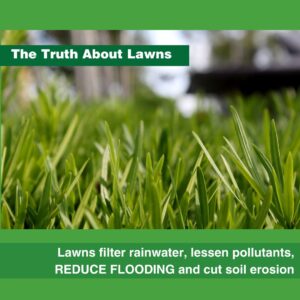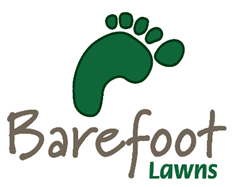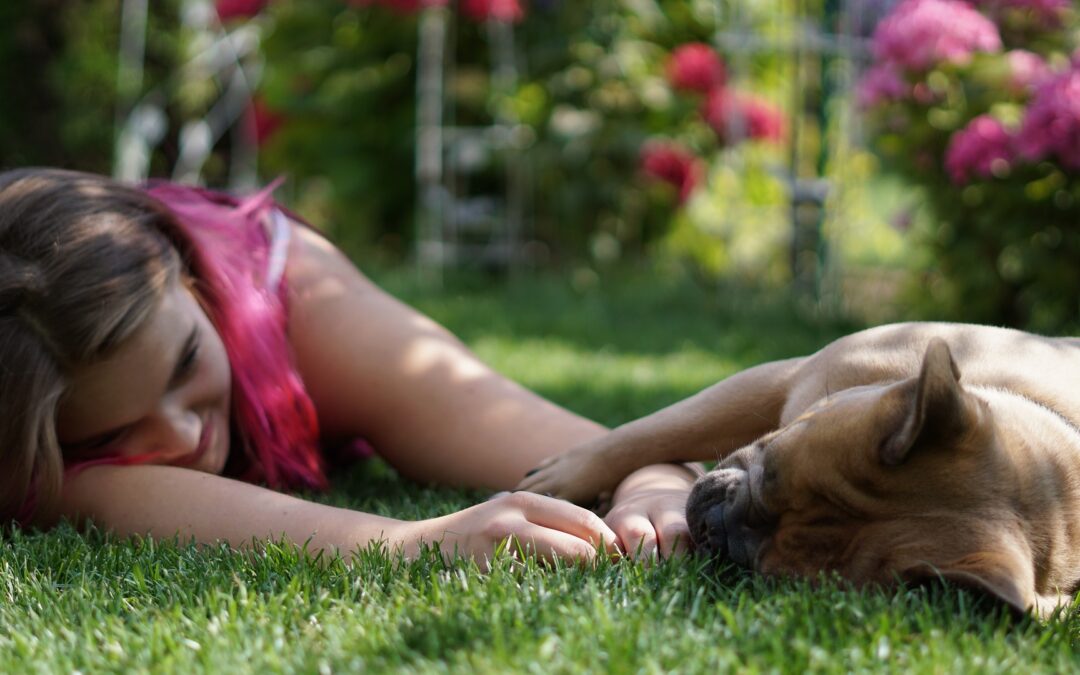As homeowners and parents, many of our customers have questions surrounding the safety of lawn care products. More specifically, there’s lots of worry around synthetic fertilizer. We frequently hear, “Is fertilizer safe for my kids and pets?“, “What if my pet eats fertilizer?” or “What if my child touches it?“. All of these are valid questions you should ask for your family’s safety, and we’re here to give you answers. While “chemical” often has a bad connotation, fertilizers are perfectly safe if handled carefully and precisely according to directions. So let’s look further into fertilizer safety for your kids and pets.
Why should I apply fertilizer to my lawn?
Fertilizer is a valuable tool for your lawn’s health. For one, it promotes healthy growth during the growing season. It makes having a dense, lush lawn easier to obtain and plays a huge part in growing lawns soft enough to lay on. In addition, fertilizer provides your grass with fundamental nutrients like nitrogen that strengthen roots and increase its resistance to stress. Finally, it boosts curb appeal and can increase your property value. These are just a few of the many reasons why our customers choose to routinely use fertilizer time and time again. But is it actually safe to use?
In short, YES: Fertilizer is safe for your kids and pets if used correctly.
 Both organic and synthetic fertilizer is always safe if you use the product according to its directions. However, there are many other ways to keep the application process safe for you and your family:
Both organic and synthetic fertilizer is always safe if you use the product according to its directions. However, there are many other ways to keep the application process safe for you and your family:
- Reading the product label before lawn fertilization. This step ensures that you know the fertilizer’s directions and ingredients. Knowing the ingredients will help you avoid allergens, and understanding the directions will help you evade any hazards.
- Keeping children and pets away during the application. Fertilizer quickly becomes safe once it’s on the lawn, but keeping your children and pets inside during the application is essential. Once the recommended waiting period is over, they can run outside and play again.
- Wearing protective gear (or better yet, hiring a pro). Pure fertilizer can irritate the skin, so it’s best to distance your skin from the product with gloves, a mask, long pants, and closed-toe shoes. If you’d rather avoid dealing with the hassle, hiring a professional is the easier way to avoid buying gear and distance yourself from the product during application.
- Safely storing fertilizer. Keep fertilizer in a cool, dry place and out of the reach of children. Fertilizers can contaminate surrounding items, so having them in a sealed container away from food items or other chemicals is reasonable.
How to read fertilizing instructions.
Follow these four steps carefully to make fertilizer application a breeze:
- Find the label on the product and read it thoroughly. As mentioned before, this is the most critical step in fertilizing. Familiarize yourself with the application process and any hazards it points out.
- Read the NPK label to see the nutrient levels. Nitrogen, phosphorous, and potassium (NPK) are the three main macronutrients that grass needs. Double-check that your fertilizer meets the needs of your lawn identified in a soil test to prevent lawn damage.
- Determine the application rate according to your lawn size. Fertilizer bags often have guidelines for applying their product to a lawn. You can also use a fertilizer calculator, such as this NPK Fertilizer Calculator from the University of Georgia, which recommends fertilizer rates in pounds per 1000 square feet typical of homeowners’ reports.
- Follow safety precautions. Usually, fertilizer labels will highlight important precautions to make fertilizer handling safe. Whether it says “keep out of reach of children” or “do not place in moisture or light,” always follow the label.
Fertilizers are beneficial to the environment.
So, we’ve covered that fertilizers can be safe for your family, but what about the environment? Fertilizers have several environmental health benefits. For example, it improves soil quality and biodiversity and reduces soil erosion. In addition, fertilizer introduces vital micro and macro nutrients into the soil, where soil microbes and other organisms benefit.

Fertilizers on the market are EPA tested and approved.
The United States also guarantees the safety of its fertilizer in the markets by ensuring they are tested and approved. All fertilizers sold in the US must be registered with the EPA and undergo testing to confirm they meet the agency’s safety standards. In addition, manufacturers must submit data on their product’s safety and effectiveness. So what you see on the shelves of your local garden store has been tested vigorously to guarantee the safety of customers and their families.
Licensed applicators must pass a pesticide exam before doing lawn fertilizing services.
Massachusetts requires individuals who apply pesticides commercially or for hire to be licensed or certified. Plus, the state also requires continuing education to maintain licensing. Licensed professionals are trained to follow product labels to a T, so they understand the consequences of not following the directions. This makes professional lawn care experts in Massachusetts the safest route to apply fertilizers.
Commonly asked questions by our customers.
We’ve gotten several other common questions about lawn fertilization safety, so here are the answers to the top three questions:
- What if my pet eats fertilizer? Pets ingesting a small amount of fertilizer will likely have minor or no symptoms. It takes significant amounts to raise alarm bells and require a vet visit. If you’re still anxious, you can also choose from several pet-safe fertilizers on the market.
- Can fertilizer runoff harm the environment? Mispractice can cause fertilizer runoff, but timing fertilizer applications correctly prevents runoff. For example, it’s best practice to fertilize several days before or after rainfall to prevent it from being washed away. Otherwise, fertilizer can actually help reduce soil erosion by improving plant growth. The development of grass roots keeps soil tightly together, thus reducing runoff.
- Can lawn fertilization harm beneficial insects like bees? Fertilizers with control products can indeed harm bees, but many fertilizers don’t have control products in them. In addition, opting for slow-release fertilizers is safer for bees and is an excellent choice for home fertilizing.
Fertilize your lawn with ease by calling our lawn care team in Sterling, Massachusetts.
Barefoot Lawns is dedicated to providing central Massachusetts residents with child and pet-safe lawn fertilizing services for a thriving yard. If you’re ready to level up your Northeastern lawn or would like to talk to us directly about if fertilizer is safe for your kids and pets, please call (508) 281-1441 or contact us here. For more tips and tricks from the experts, visit our blog.


Recent Comments